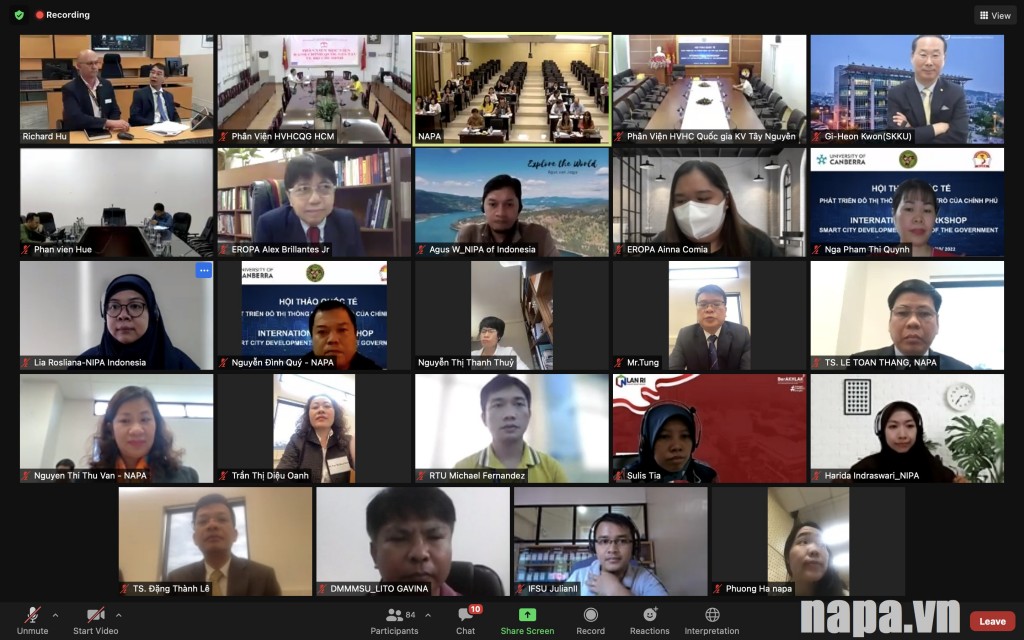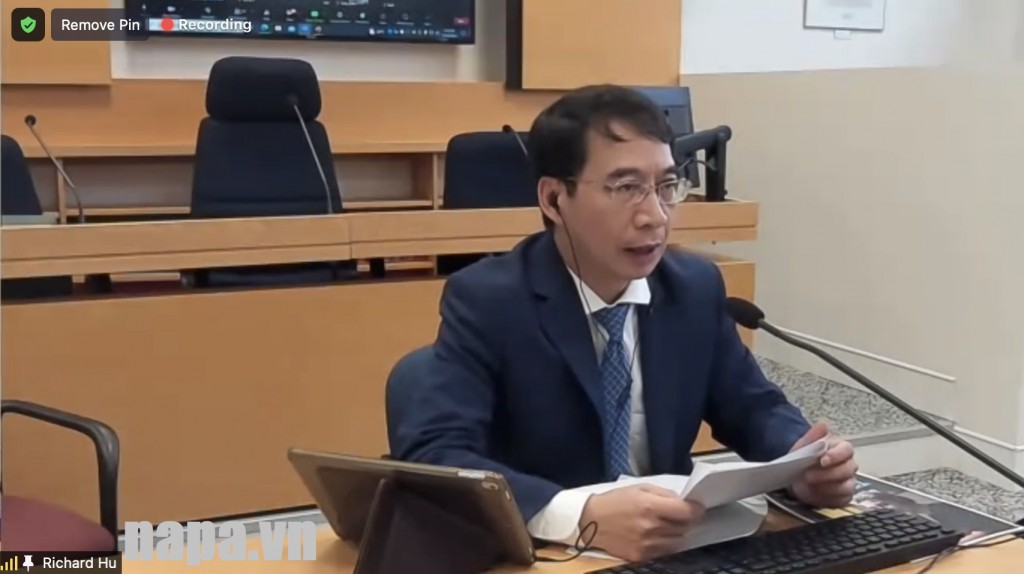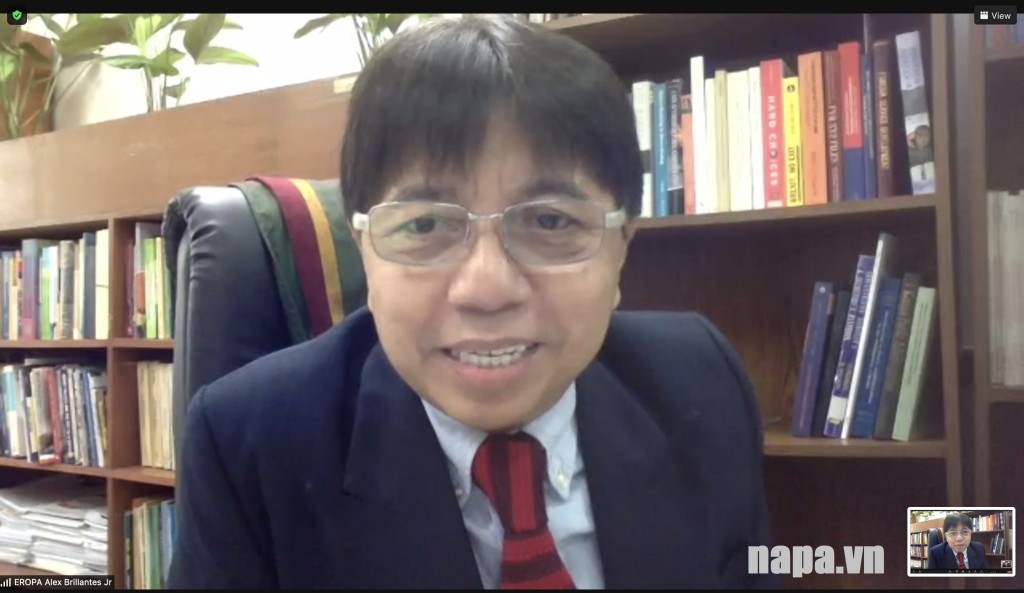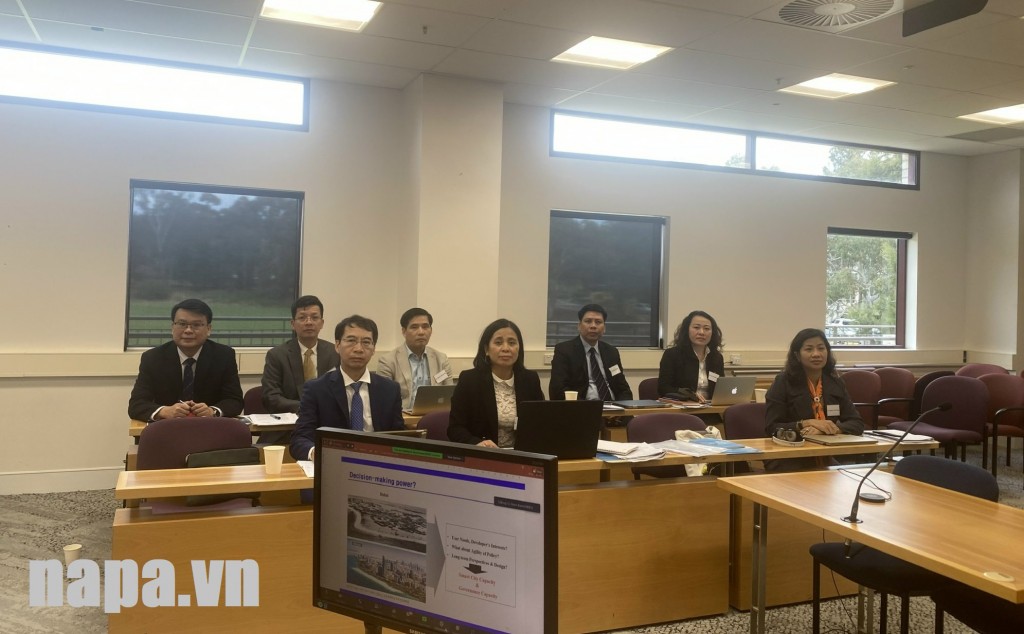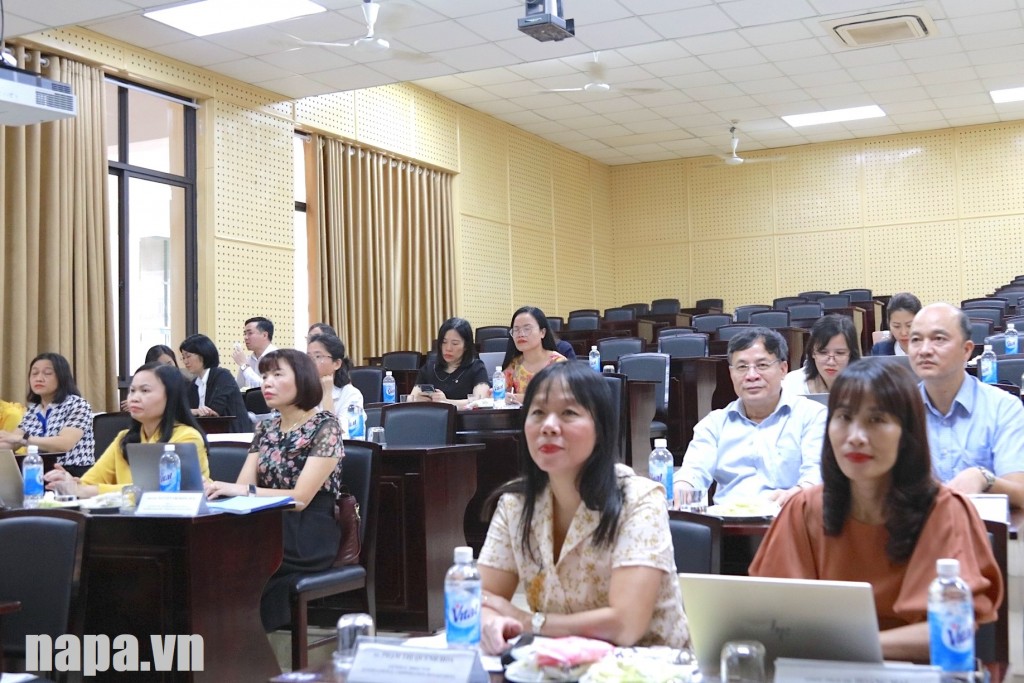On October 19, 2022, the National Academy of Public Administration (NAPA), in collaboration with the University of Canberra (Australia) and the Eastern Regional Organization for Public Administration (EROPA), organized an international workshop entitled “Smart City Development: Roles of the Government”.
The Workshop is held in a hybrid format and broadcast live to many bridge points around the world.
Attending the Workshop were more than 40 Vietnamese and international experts and scholars, including Dr. Alex B.Brillantes, Jr., EROPA Secretary-General; Mr. Simon Hoy, Associate Dean (Partnerships and Engagement), Faculty of Business, Government and Law, University of Canberra, Australia; Prof. Richard Hu and Dr. Tom Chen, University of Canberra, Australia; Dr. Gi Heon Kwon, Dean of the Graduate School of Governance, Sungkyunkwan University, Korea; experts, researchers, and scientists from different countries.
Assoc. Prof. Dr. Luong Thanh Cuong, NAPA Vice President and the NAPA’s delegation participated in the Workshop at the bridge point of the University of Canberra (Australia). Many Vietnamese scholars and lecturers attended the Workshop at the NAPA Headquarter in Hanoi, Viet Nam.

Ms. Pham Thi Quynh Hoa, Director General of the International Cooperation Department, NAPA introducing the program and the delegates and guests attending the Workshop.
At the bridge point of the University of Canberra (Australia), Assoc. Prof. Dr. Luong Thanh Cuong, NAPA Vice President, delivered the opening speech of the Workshop and affirmed that building a smart city is considered one of the effective solutions to the rapid development of the urbanization process. Smart city development is an important driving force to realize the goal of turning Viet Nam into a modern, high-income industrialized country by 2045. At the same time, building and developing smart cities will promote national digital transformation and socio-economic development on the basis of science-technology, innovation and creativity.
In Viet Nam, the Prime Minister issued Decision No. 950/QD-TTg dated August 1, 2018 approving the Project on sustainable smart city development for the period 2018 – 2025, with an orientation to 2030. Currently, more than 40 provinces and centrally-run cities have been implementing smart urban development projects based on the specific socio-economic conditions of each province and each region. The problem is how to choose suitable models for localities while ensuring synchronization, reasonableness, and meeting modern development trends. With the current urbanization rate, smart cities are one of the effective urban development directions, improving people’s quality of life. In particular, the government plays a particularly important role in the smart city development process, both in terms of politics and socio-economy, to ensure that the right decisions and policies are made to effectively solve problems and challenges in smart city development.
The Workshop received a lot of experience and practice exchange on issues related to the smart city development process, roles of the government, and implications for Viet Nam. On that basis, specific solutions to promote smart city development and recommendations on training cadres, civil servants and public employees were offered to meet the task of smart city development towards sustainable urban development.
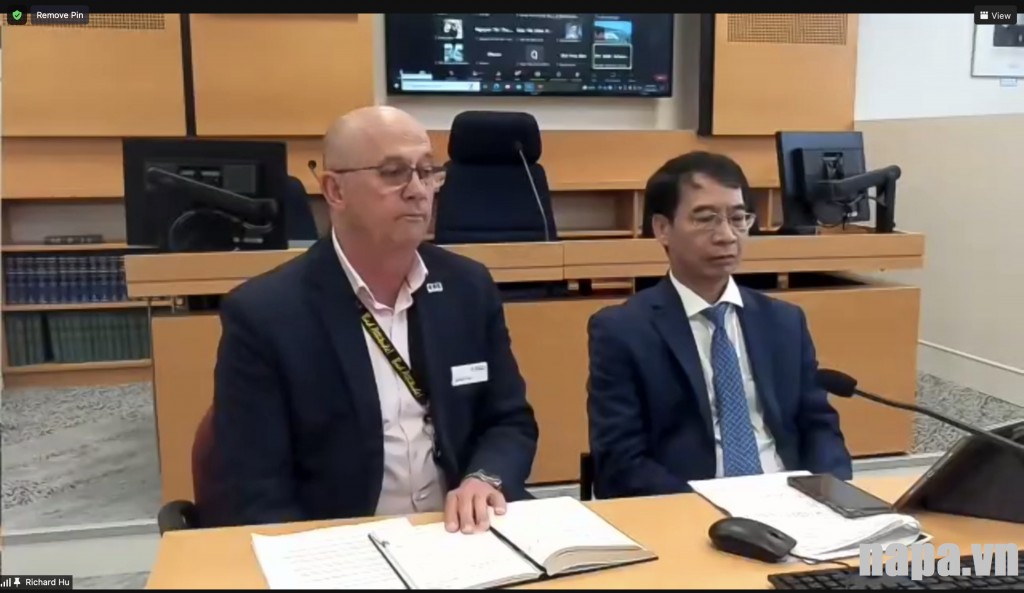
Mr. Simon Hoy, Associate Dean (Partnerships and Engagement), University of Canberra, delivering the opening speech.
On behalf of EROPA, Dr. Alex B.Brillantes, Jr expressed his respect and thanks to NAPA and the University of Canberra for co-organizing a very meaningful international scientific workshop, hoping that the Workshop will have many opinions and in-depth discussions with rich scientific content, effectively contributing to the contents related to the topic of the Workshop.
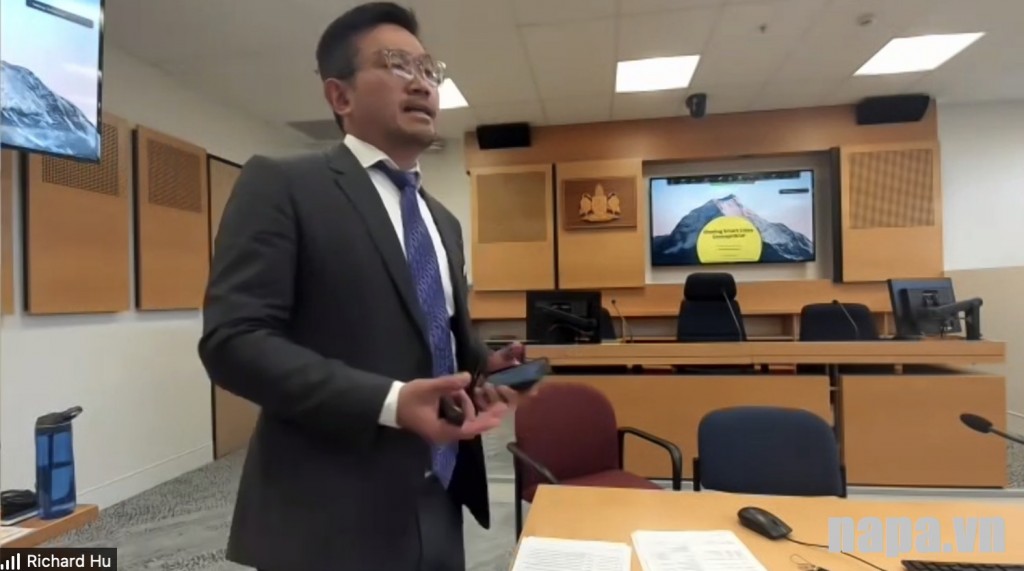
Dr. Tom Chen, Faculty of Business, Government and Law, University of Canberra, Australia speaking at the Workshop.
In the presentation “Sharing smart cities: a human-centric, transdisciplinary approach”, Dr. Tom Chen presented approaches, concepts of smart cities, and the great benefits of developing and operating smart cities. He emphasized the human-centric approach in the smart city development process, applying digital technology to promote this progress, and bringing the best welfare to the people in order to achieve the goal of sustainable development. According to him, smart city development is an important task for governments, posing a requirement to develop new methods and solutions with four pillars namely (1) Knowledge; (2) Relationship; (3) Resilience; (4) Sustainability.
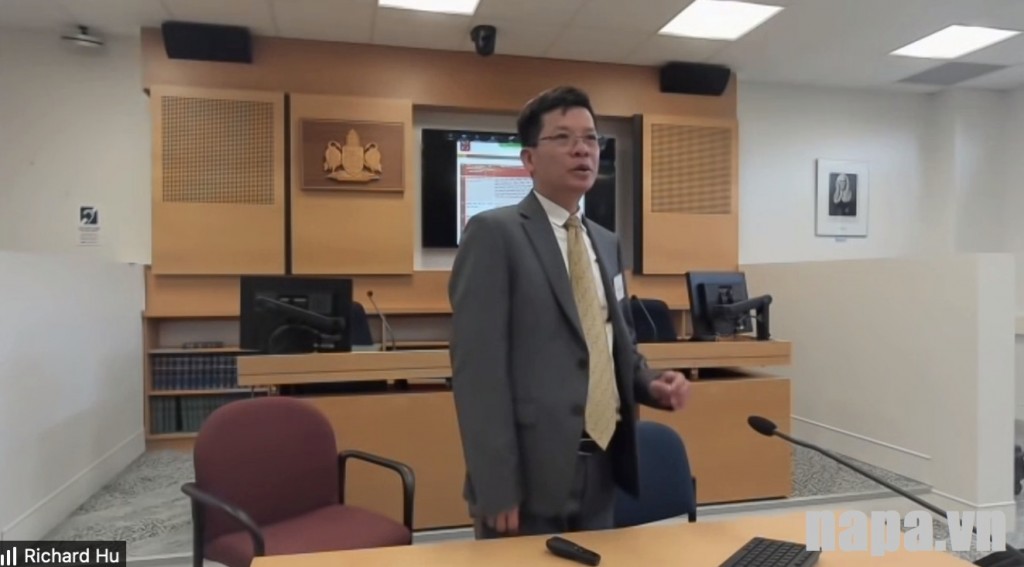
Dr. Dang Thanh Le, Director of the Institute of Administrative Studies, NAPA, speaking at the Workshop.
In the presentation “Smart city development in Viet Nam: current situation and challenges for public management”, Dr. Dang Thanh Le, Director of the Institute of Administrative Studies, NAPA, briefly outlined the current situation of smart city development in Viet Nam, on the basis of guidelines and legal framework on sustainable smart city development, with 6 main indicators: (1) Developing a smart, innovative, creative and highly competitive economy; (2) Enhancing smart mobility in multilateral approaches from within the region and the world; (3) Friendly smart environment and sustainable resource management and use; (4) Smart people with high identity and sense of community, ensuring gender equality and human rights; (5) Smart lifestyle ensuring personal health and safety, social cohesion and protecting the ecological environment; (6) Smart governance, providing the most favorable public services, a fair and transparent society, and enhancing people’s participation in management. Along with rapid economic development, Viet Nam is one of the fastest urbanizing countries in the world. There are many problems in the process of urbanization, such as climate change, population growth, the gap between rich and poor, etc., posing numerous difficulties to public governance.
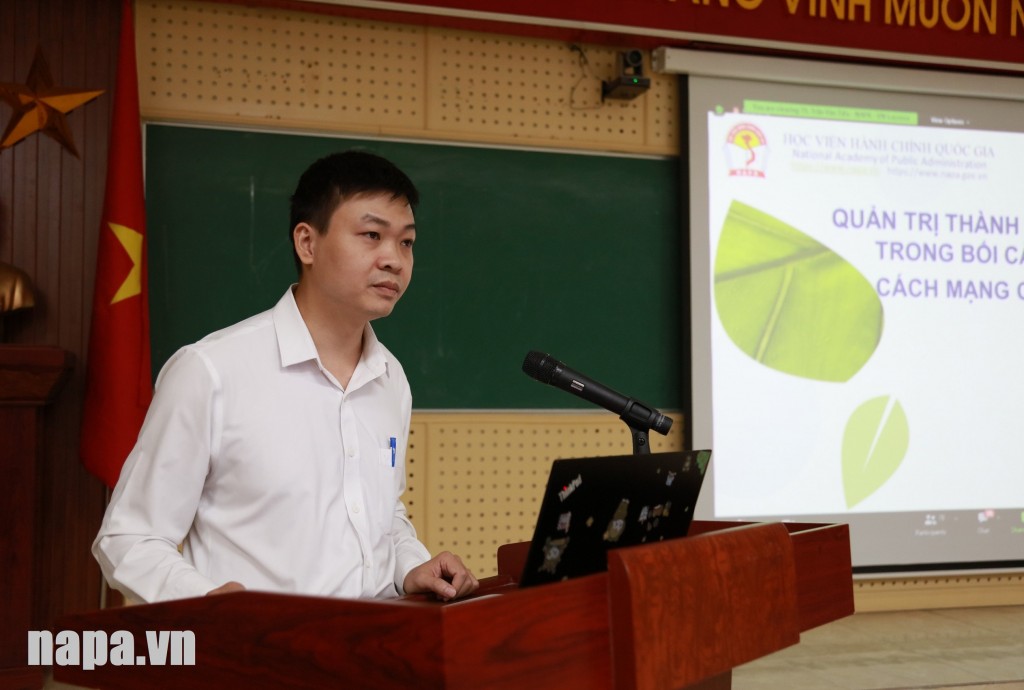
Dr. Tran Van Tien, lecturer at the Faculty of State Management of Social Affairs, NAPA, speaking at the Workshop.
Speaking at the Workshop with the presentation “Smart city development in Viet Nam in the context of the fourth industrial revolution: issues of governance”, Dr. Tran Van Tien believed that smart urban governance must be based on three pillars namely technology, governance and citizens. In particular, governance is the bridge to ensure compatibility with the change in technology and the level of residents. Therefore, the governance system and institutions must change in a smarter way, helping to expand the superior impact of technology on social groups. Dr. Tran Van Tien made a number of proposals for smart city governance in the context of the 4.0 industrial revolution in Viet Nam, such as building a flexible management institution for smart cities; prioritizing pillars; developing high-quality human resources; developing governance capacity; consulting and learning from the smart city model of other countries, etc.
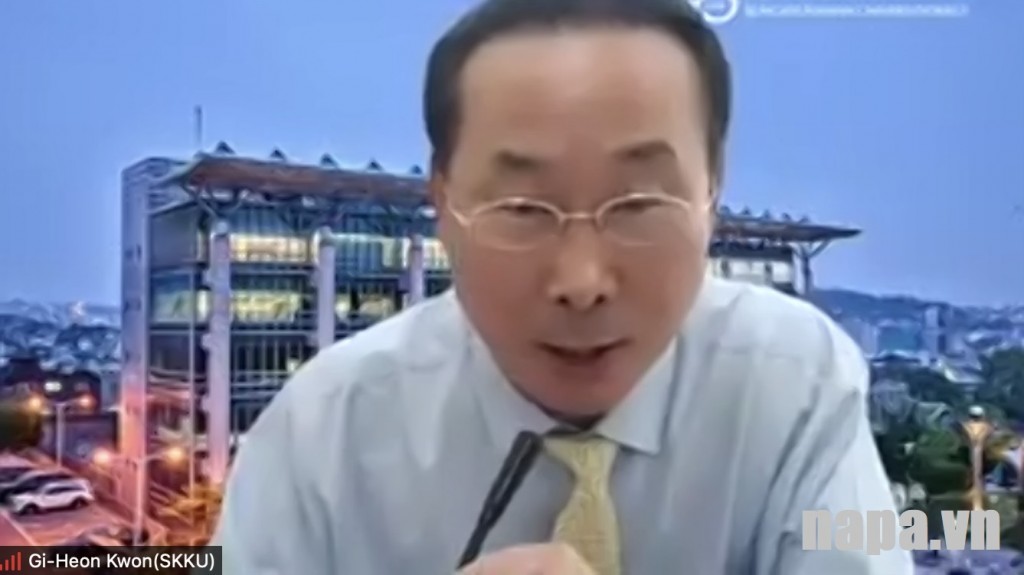
Dr. Gi Heon Kwon, Dean of the Graduate School of Governance, Sungkyunkwan University, Korea speaking at the Workshop.
Dr. Gi Heon Kwon discussed smart city development in South Korea and lessons learned, such as why a smart city is needed?; evaluation aspects of smart cities; 10 considerations when building a smart city, etc. According to Dr. Gi Heon Kwon, building a smart city needs to be oriented towards user needs on the basis of meeting policies; the design of smart cities must be predictable towards long-term and sustainable goals. He also proposed frameworks and policy evaluation models for smart city development from experiences in Korea.
Dr. Richard Hu, Faculty of Business, Government and Law, University of Canberra, Australia speaking at the Workshop.
Dr. Richard Hu gave the presentation “The Australian Government’s smart cities agenda: Policy, politics, and urban governance”. The Australia’s national urban policy was developed in 2015, focusing on the implementation of “urban agreements” with the aim of enhancing cooperation and coordination at government levels. During implementing smart urban development projects, the government focuses on long-term investment in infrastructure through the mechanism of co-investment and co-commitment. He emphasized that the core issues of smart city development are innovation and creativity, smart investment, and smart infrastructure by urban agreements, thereby contributing and sharing resources and responsibilities between different levels of government to achieve long-term goals.
At the Workshop, the participants also asked many questions and discussed on online software to clarify the concepts, development trends and basic criteria of smart and sustainability as well as the realities, opportunities and challenges in smart city development in Viet Nam; the role of government from central to local level in sustainable smart city development; international experience in sustainable smart city development, and solutions to promote the role and capacity of the government in sustainable smart city development.
The NAPA delegation participating in the Workshop at the bridge point of the University of Canberra (Australia).
Speaking at the closing of the Workshop, Assoc.Prof.Dr. Luong Thanh Cuong would like to thank experts, researchers and scientists from many countries for their interest, participation and exchange of ideas on matters related to smart city development and the roles of the government. The government serves as both an institutional creator for smart city development and an initiating center, attracting social resources, and creating social consensus for the process of realizing the goal of smart urban development, with the ultimate aim of improving people’s living standards and serving society for sustainable development. The presentations and opinions at the Workshop have provided valuable perspectives and approaches for reference in Viet Nam, particularly for NAPA in the process of researching and developing the program of training, contributing to the policymaking process on building smart cities in the coming period.
Hong Anh


